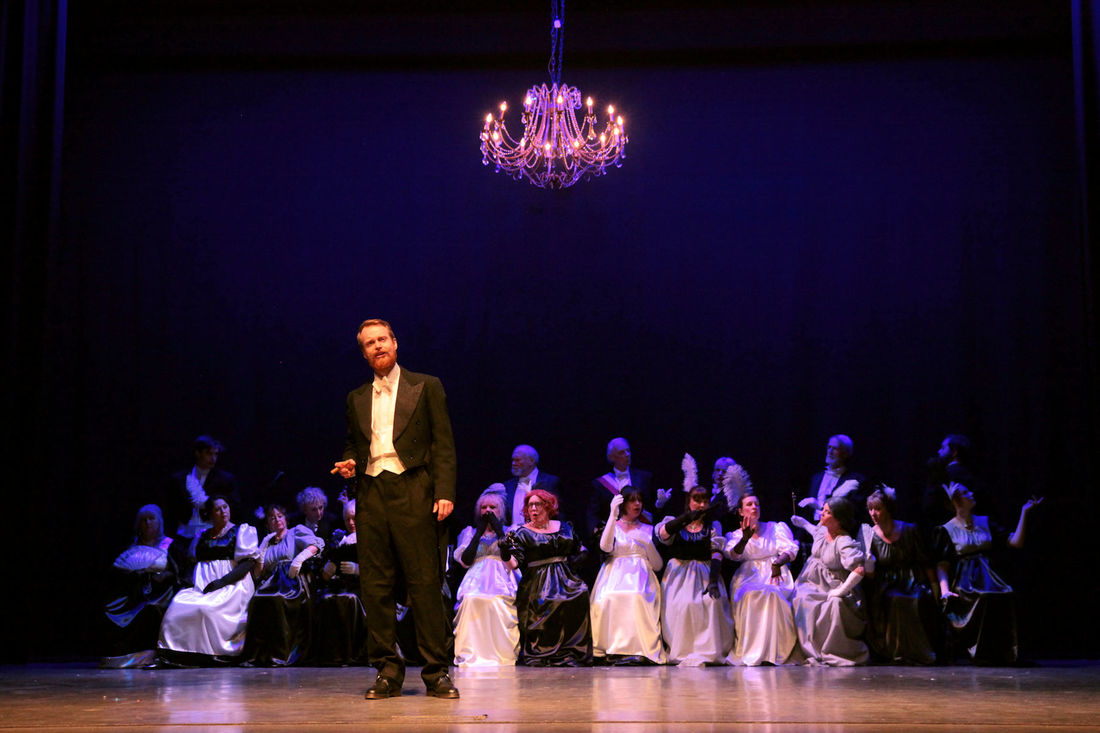White Rock Theatre, Saturday 21 April 2018
The contrast between intimate encounters and public celebrations was well caught in Fraser Grant’s production of Eugene Onegin for Opera South East. Eschewing large scale sets or naturalistic lighting he focussed on the key relationships that are at the heart of the narrative. This puts a much higher level of responsibility on the soloists who were vocally up to the challenge even if the nuances of their relationship s did not always flower as one might have expected. Kristy Swift’s Tatiana was at her best in the earlier acts, the letter scene being particularly impressive in its emotional outpouring and gauche naivety. She showed more maturity in act two but the final scene proved problematic. Seven years have passed and she is now married into the aristocracy, but when she meets Onegin again she goes to pieces rather than drawing on the strength she has acquired over the intervening years. It is a deeply feminist scene where the heroine proves to have the staying power even at the expense of her emotions, but this interpretation let Onegin off the hook.
Rene Bloice-Sanders was a fine Onegin, a remote aristocrat in the early scenes and gentler than is sometimes the case with the gushing Tatiana. The death of Lenski is the point of no return and in the final scene his constant physical assault on Tatiana was uncomfortable to watch.
Though Jonathan Cooke sang Lenski with authority he does not have an obvious Lenski voice and at times the sound was tight and forced. This was dramatically interesting but not the smooth legato the music seems to call for.
Smaller parts were cast very much from strength with Felicity Buckland a splendidly vibrant Olga, Karen McInally a beautifully characterised nurse and Jack Naismith a cleanly articulated Zaretski. The company was also lucky to have David Woloszko as a magnificent Gremin. He may only have one aria but it can steal the show.
Opera South East does have a problem with its chorus – not with the sound so much as with the balance. Having so few men made all of the choral scenes one sided. This was not so much of a problem with the peasants in the opening act but meant that the dancing for Tatiana’s party never really happened and the final ball was changed into a solo ballerina. This was an intelligent compromise but undermined the structure of the opera which hangs, for its social context, on the three key dance scenes.
The orchestra under Kenneth Roberts were on good form, with some strong solo work. It was particularly interesting to note the occasional harp and similar added effects from Nigel Howard.

